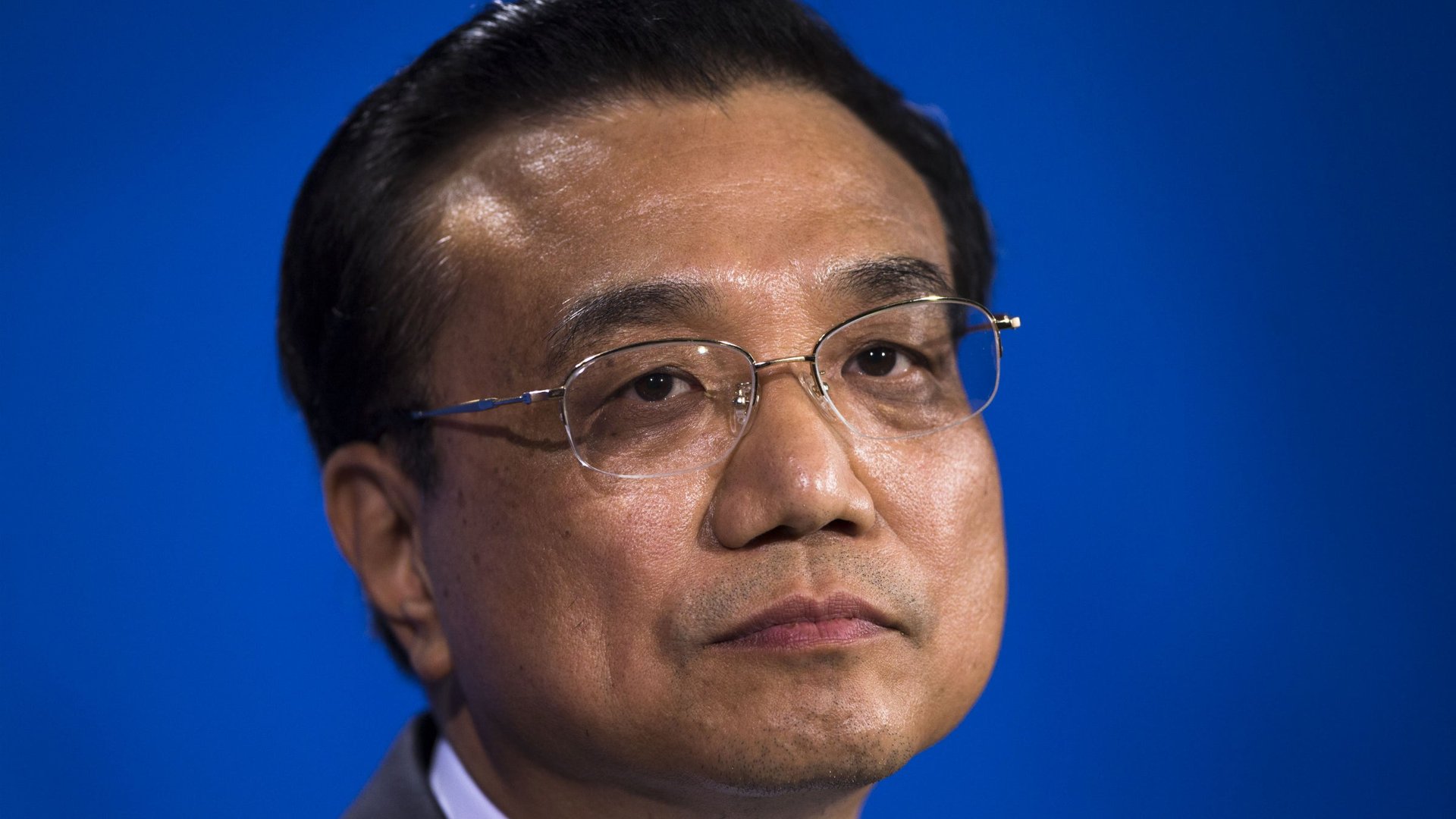The Chinese government is going to rebalance the economy—for real this time
The Chinese government is getting serious about ending the state’s parasitic role in the Chinese economy, reports the New York Times.


The Chinese government is getting serious about ending the state’s parasitic role in the Chinese economy, reports the New York Times.
Again.
Here’s the latest: Following a recent speech by Chinese premier Li Keqiang setting out the reform agenda, the government published a list of policies that would rebalance the economy away from exports and, more critically, investment, and toward consumption. Interest rate liberalization, deepening of the capital market, loosening of foreign exchange restrictions—these and other hoped-for items all made the docket.
But these proposals have been mooted for ages, with little to show for it. That’s in large part because meaningful reform hinges on freeing up the flow, allocation and pricing of capital. Though letting the market price capital might, for instance, raise deposit rates—a big boost to household wealth and, therefore, rebalancing—it could also mean less lending. And since the government’s use of lending as a policy tool is what’s keeping GDP growth above 7%, the economy would sputter.
It’s that trade-off that makes Patrick Chovanec, chief strategist at Silvercrest Asset Management, skeptical about imminent reform. It’s not that the government isn’t aware of how hard reform will be, he says, pointing to Li’s remark last March that market reform would “be very painful and even feel like cutting one’s wrist.”
“Premier Li has been saying the right things for the last year,” Chovanec tells Quartz, noting that lending has nonetheless surged. “[But] to really have reform would mean that the government can’t control the cost of capital and the allocation of capital. Are they willing to do that?”
Ceding that control would also mean reckoning with untold billions in local government debt. Plus, China’s banks are supplying that, and because rolled-over loans aren’t counted as bad debt on their balance sheets, no one really knows how big that problem really is.
This is just one reason that banks are “not prepared in the slightest” for the opening up of the capital account, says Alistair Thornton, economist in the Beijing office of IHS, an economic research firm. “Most importantly…banks need to be commercialized, and freed from policy interference,” Thornton tells Quartz. ”[The government] wouldn’t be able to open up the capital account without either first or simultaneously liberalizing the financial/banking sector. The risks to the system would be far too large.”
Perhaps coincidentally, on Thursday Reuters reported that Li quashed a $6.5 trillion urbanization plan because it would push up debt and further inflate local real estate bubbles. But on Friday, the State Council Development Research Center scoffed at the report over Sina Weibo, saying, “As far as we know, this news isn’t right. Urbanization is still in the drafting process and hasn’t yet been published, so how could it be rejected?” (link in Chinese).
It’s hard to tell what’s really going on there. Either way, though, it’s unfortuntate. Stymying that plan would have been an aggressive shift away from China’s investment addiction. But until those sacrifices start to happen, it’s probably better not to expect more than speeches and lists.